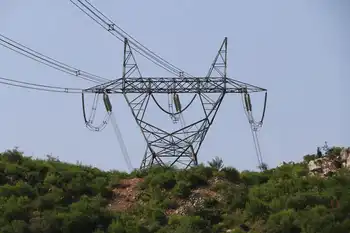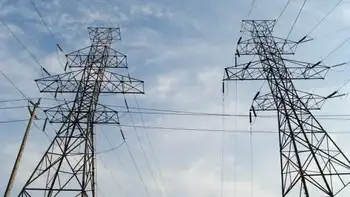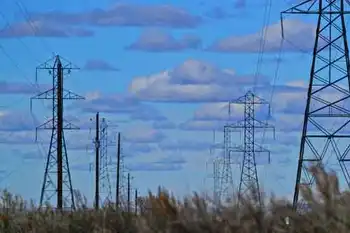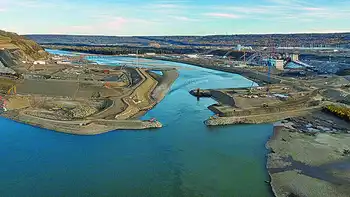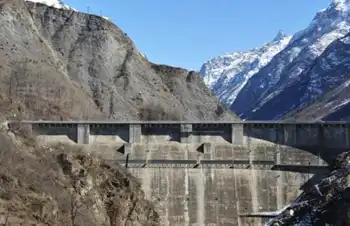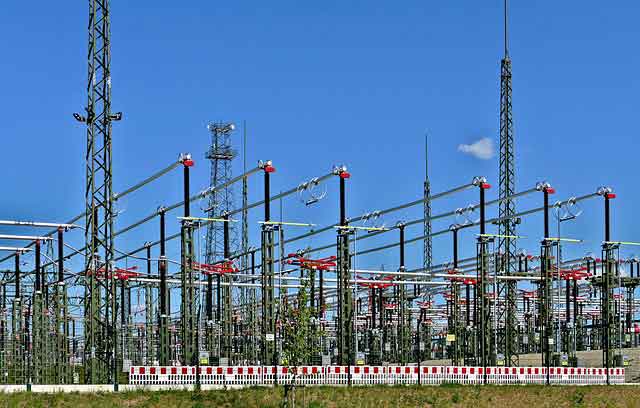Meager Creek Geothermal project faces obstacle
By Whistler Question
Protective Relay Training - Basic
Our customized live online or in‑person group training can be delivered to your staff at your location.

- Live Online
- 12 hours Instructor-led
- Group Training Available
“I think they’re going to face an incredible amount of opposition,” said Bruce Miller, a Pemberton farmer whose family-run farm has existed since the early 1900s.
“We’re entering an age where tourism is becoming a big part of the community,” he said. “People who come here want to see the valley... not power lines.”
The Meager Creek geothermal project, 70 km northwest of Pemberton, is still in its development stages.
Vancouver-based Western GeoPower Corporation has submitted a permit request to start building roads to Meager to drill into a super-heated underground reservoir. The drilling of two wells will confirm the commercial viability of the project. By the yearÂ’s end, the final feasibility study on the project will be completed.
In F ebruary, a second feasibility study produced by California-based GeothermEx, which has evaluated geothermal projects worldwide, gave a thumbs-up to the potential of the Meager project to become the first commercially producing geothermal power plant in Canada.
The study estimates the project will likely produce 192 megawatts of electricity, enough energy to power 80,000 households.
Currently, the preferred route to connect power from the plant to the power grid is through Pemberton Valley, because itÂ’s the most direct of all the options, said Joanne Calverley, Western GeoPowerÂ’s corporate and financial communications officer.
However, the final decision will be made after company officials meet with interested parties. Dates for those meetings have not been set.
Calverley said that so far, she hasnÂ’t seen any direct public resistance to the project.
“We’re at the stage where we’re going to have to meet with various parties (to discuss this),” she said.
The other options for the transmiss ion line are the Lajoie Dam, Elaho and Rutherford routes.
Miller said he can see the advantages of geothermal energy as an electricity source.
“But would they be willing to negotiate with the community and keep their word? That’s the issue right there,” he said.
ThatÂ’s the sort of sentiment that caused many Pemberton Meadows residents to express opposition to the Miller Creek micro-hydro project two years ago.
With that project, residents were promised by the previous proponents that the transmission of power would take place on existing power poles. The project was then sold, and the new proponents began digging holes for new, larger poles — leading to a public outcry.
Miller Creek proponents finally revised their plans slightly, including some new poles for the line to the power substation in Pemberton.
The fight left a bitter taste in the mouths of some residents, who claimed other promises about the size of the reservoir and the building of roads were not adhered to as well.
“With the Miller Creek project, they lied about every aspect of the project, and we don’t expect anything new from this,” Miller said.
“There were no government repercussions,” he said. “They let them get away with murder. People were caught sleeping and were too trusting of the process. I don’t think the people in the valley will get caught sleeping again.”
Charlie Davies, a Pemberton farmer of 25 years, said because of the Miller Creek experience, the local government will know whatÂ’s coming.
Davies said what really scares him is Bill 75, a piece of recent legislation that gives the provincial government the power to override local government authority on projects deemed “provincially significant.”
Calverley said Meager Creek proponents plan to erect a completely new transmission line of standard, wooden T-bars to connect to the existing transmission grid.
Because the plant is a closed-end, underground network, the only emissions would be evaporation through the steam plant, she said.
The c apacity of the Meager reservoir is such that GeothermEx concluded it would likely take 10 years for the water that goes through the plant initially to be recycled and come up again, Calverly said.
Preparation for the drilling is underway, and Calverley said officials hope the work will start in May.





